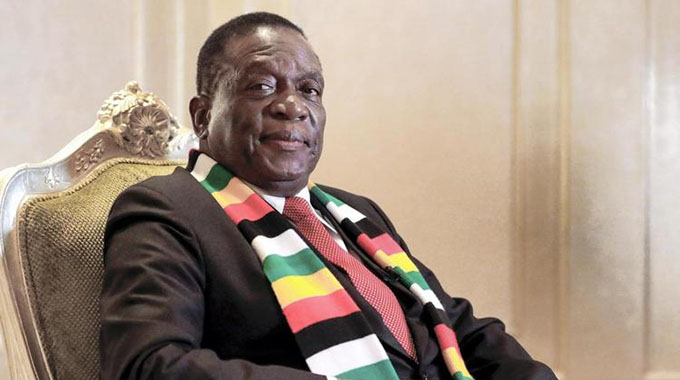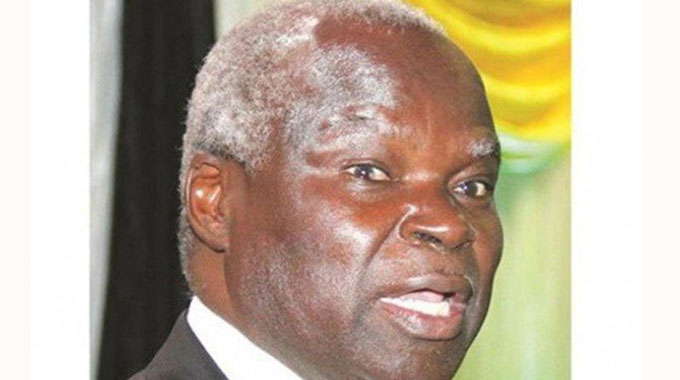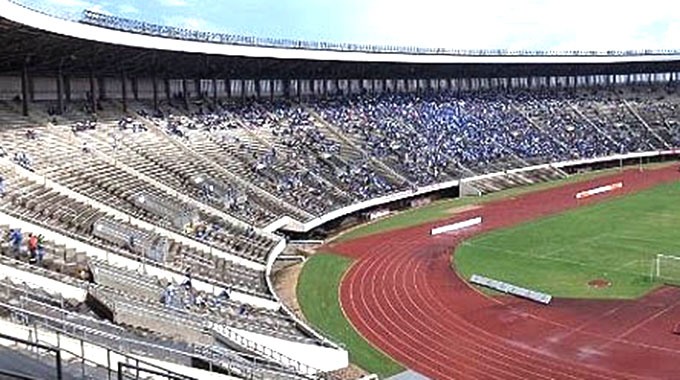‘Time to shed colonial mentality’

Walter Nyamukondiwa Mashonaland West Bureau
Government is unshackling Zimbabwe from the limiting colonial educational system and redesigning it to optimally exploit inherent potential, heritage and resources, President Mnangagwa has said.
To that end, the President said, Zimbabwe was determined to overcome all obstacles and odds laid in its path towards resilient, home-grown and solutions-based development anchored on industrialisation and innovation.
In a speech read on his behalf by Higher Education, Science and Technology Development Minister Professor Amon Murwira at the launch of the National Cattle Breeding Project in Chinhoyi yesterday, the President said as a result of re-engineering the nation’s education trajectory, home grown solutions were beginning to be realised.
“We need to devise and design our systems in such a way that they deliver. Development is normally against the odds, it is movement against the odds, movement against detractors and what we have to say is pamakamira ipapo vadzivisi (detractors) ndipo patiri kuuya napo as Zimbabwe.
“It basically means when we want Zimbabwe to prosper we have to redesign our systems so that we reach our destiny. We should banish the colonial design because the design by nature was not made for our benefit.”
He said religiously following the colonial design meant perpetually undermining the country’s development.
The President said Zimbabwe should be inward looking as a solid foundation for development and attainment of Vision 2030 for an upper middle income economy hinged on food focused technologies.
He said Zimbabwe could not develop by importing food and other basics but should focus its technologies on food production.
“To this end, we have redesigned our education system to optimally exploit our potential as a nation based on our heritage. You can never develop based on things that you do not have,” he said.
“It basically means you have to develop based on the resources that are around you. That is why Great Zimbabwe was built from stones that were around. Develop with what you have.”
President Mnangagwa said the scope of Zimbabwe’s human capital base needed to be expanded to be able to operate in the realities of Zimbabwe.
“You can have the sharpest scientific mind, engineering mind, mathematics mind but as long as it is not operating on the resources of Zimbabwe, it is not useful.
“The colonial system caged us. It was designed to cage us. Our universities had three missions teaching, research and community engagement.
“To expect from this design an education system that produces goods and services is expecting an octagon to be a wheel,” he said.
President Mnangagwa said the systems were perfectly designed so that people in the colonies were just trained to run but not design them.
“This model has to be thrown away, it is a colonial model lest we thought that it was good. So we are getting out of this cage, we don’t want this cage where education was not exploited to its full potential.
“We have a firm belief, firm conviction that our destiny as a country is in our minds, in the brains of our most intelligent people,” he said.
Zimbabwe, the President said, will co-operate with countries willing to on mutually beneficial grounds.
On the Biotechnology and Advanced Reproductive Technologies programme launched yesterday, President Mnangagwa said it was in line with Government’s thrust for heritage based education.
“This programme is one of the key pillars of innovation hubs that we are setting up at tertiary institutions. The Higher and Tertiary Education Ministry embraces everyone in every sector,” he said.
CUT is spearheading the harvesting of semen, its processing and temperature specific temperature storage as part of the replenishment and growth of the cattle industry.
The straws of semen will be distributed through artificial insemination across the country to give quality and improve the quantity of the country’s cattle breed.
Among the breeds being produced includes the Mashona, Tuli, Brahman, Boran, Bonsmara, Simmental and Beefmaster among others.
It seeks to reposition the cattle industry for the export market and galvanise value chains.
The event was also attended Lands, Agriculture, Water, Climate and Rural Resettlement Deputy Ministers Vangelis Haritatos, Douglas Karoro, secretary Mr Ringson Chitsiko, CUT vice-chancellor Professor David Simbi and officials from other universities among others.











Comments